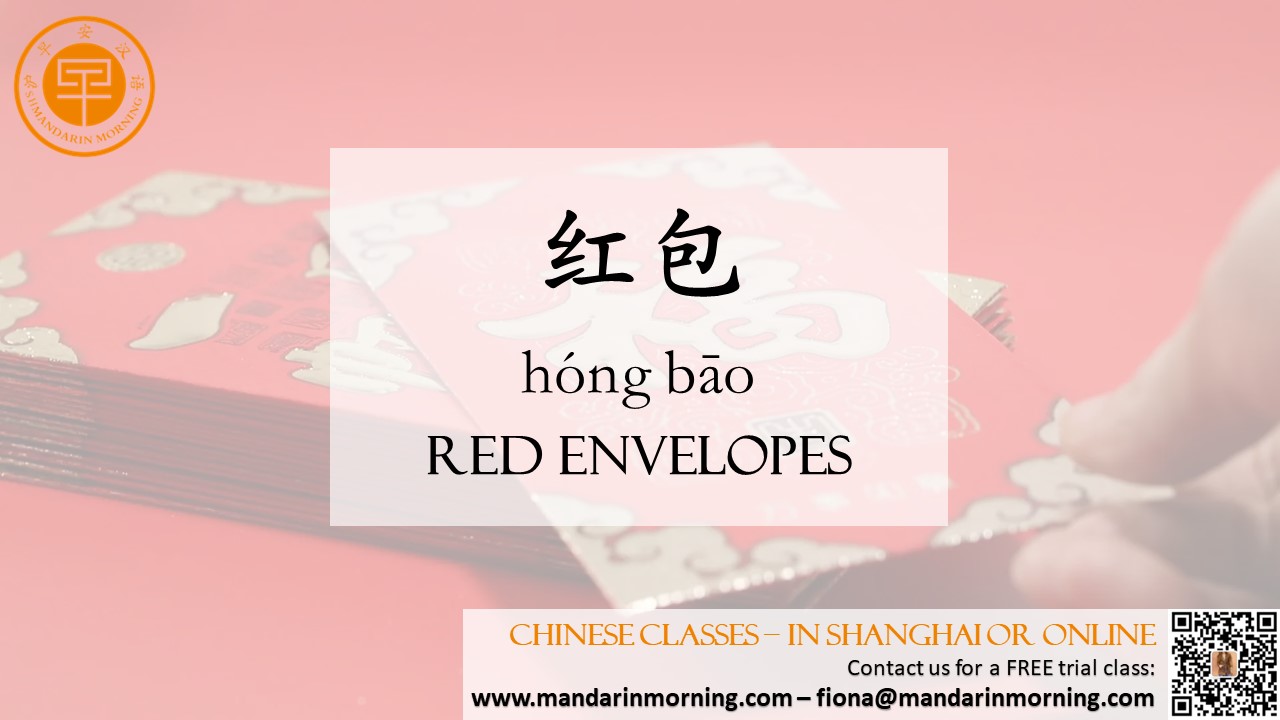| The word “hongbao” comes from the Chinese word 红包 (hóngbāo), which literally means “red bag.” Frequently referred to as “red envelopes” or “red packets” in English, these crimson paper pouches filled with money are ubiquitous across China—and even throughout much of Asia! Since at least the 10th century, red envelopes have held a unique place of ritual importance in Chinese culture. Hongbao are frequently associated with Chinese New Year (春节 Chūnjié), China’s most significant holiday, which falls on a date calculated using the lunar calendar. As the name suggests, hongbao are always red — scarlet being symbolic of good fortune as well as a way to guard against evil spirits.  Who gives and receives hongbao in China? In contemporary China, red envelopes serve much the same function that they did in dynastic China: they maintain, cultivate, and nurture relationships between different members of Chinese society. Usually, although not always, hongbao are given in the following contexts: From Old to Young (This is especially the case with children but also applies to the more vague category of “young adults”), from Bosses/Managers to Workers (Here red envelopes can sometimes serve as a sort of unofficial bonus) or from s atisfied Patients/Congregants/Students, etc. to Doctors/Clergy/Teachers, etc. Hongbao occasions Red envelopes are most commonly associated with Chinese Lunar New Year, but that’s not the only place they turn up. China is a big, populous place that’s home to many unique regional traditions—and when one considers all the myriad Chinese diaspora communities scattered around the world, it gets even more complicated! Due to the diverse nature of the communities that use hongbao today, the occasions where red envelopes are likely to make an appearance can vary depending on where you are in the world, for example on weddings, anniversaries, promotions, birthdays, graduations, festivals, etc. Virtual hongbao First introduced on WeChat in 2014 on Chinese New Year’s Eve, the “virtual hongbao” now permits anyone to send and receive these age-old gifts in the cyber realm with the convenience of the tap of a smartphone screen. The groundswell of popular support for the feature launched what has been dubbed the “hongbao wars,” with different online payment platforms. The foremost platforms are Tencent, owner of WeChat (微信 Wēixìn), and Alibaba Group, owner of AliPay (支付宝 Zhīfùbǎo). The two mega-companies vie for control of the lucrative digital hongbao market. |